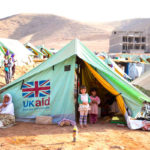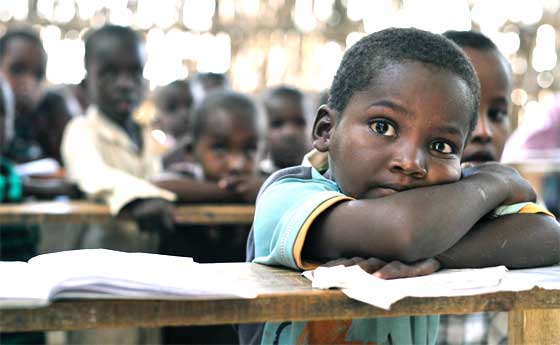Introducing the ‘buddy system’ in global development
The goal of the buddy system is not the artificial redistribution of wealth from the wealthier to the poorer countries. The goal is to facilitate interaction and exchange between the buddy countries on different levels, from administration to citizen initiatives.
Malnutrition and Empty International Promises
By Olufunmilayo Akande Today, 16,000 children worldwide die each day before celebrating their fifth birthday as a result of preventable causes linked to malnutrition.
Development in Nepal: Jeopardized by 23 Governments in 24 Years
By Rajendra Senchurey
Nepal’s counterparts in Asia have progressed dramatically in these decades. But since the advent of multiparty democracy, Nepal has not achieved anything significant. Quite surprisingly, in terms of economic progress, Nepal exhibits the characters of a Sub-Saharan economy. Then what is the cause of Nepal’s stagnation?
The Difficulties of Establishing Consensus in Development
By Edvin Arnby Machata
The task for civil servants and development professionals cannot be to find a magic bullet solution – because no such solutions exist. The question is rather one of how to establish continuous mechanisms with which problems can be detected, analysed, and solved.
China’s Belt & Road Initiative: economic prosperity or hegemony?
Chinese President Xi Jinping’s debtbook diplomacy under the guise of a developmental helping hand, an economic windfall to his South-South friends, turns into a stranglehold on their very sovereign economic livelihoods.
Fighting an Epidemic in a Poorly-Connected World
Epidemics like Ebola cause a lot of deaths, displacements, and despair and they aren’t desirable for sure; but on a positive side, they also show us the ugly side of corporate capitalism and make it very clear who genuinely cares about the world and who doesn’t.
Another Olympic Winner: Rio’s Favela Residents
By Aubrilyn Reeder
Improving the quality of life in slums, which count for 25% of the world’s urban population, is critical for improving the social, economic, and environmental happiness for cities.Latinos in London: Pride, not Prejudice
Discrimination has been described by Latin Americans as a severe issue – over 70% feel it holds them back in their day to day lives. Colombian women in particular have expressed anger over the prejudices held towards them; “as soon as we say we are from Colombia, people immediately associate us with prostitutes, and do not respect us,” complains Alba.
What the end of DFID means for international development?
DFID’s termination and merger of the development agenda within the foreign office will imply that the agenda is relegated to a secondary position within a broader foreign policy framework. This will mean that the stock of institutional knowledge and experience, accumulated and perfected over the years by DFID will come to a disastrous end.
Engineers and Entrepreneurs Hold the Key to Reducing Inequality
By Mark Malloch-Brown
So SDG 10, which almost didn't make it, is now as central to development as the fight against absolute poverty was when I and others drafted the original goals. But if there is wide agreement that inequality now poses a direct threat to the stability and health of societies, there is less agreement about what to do about it.
















